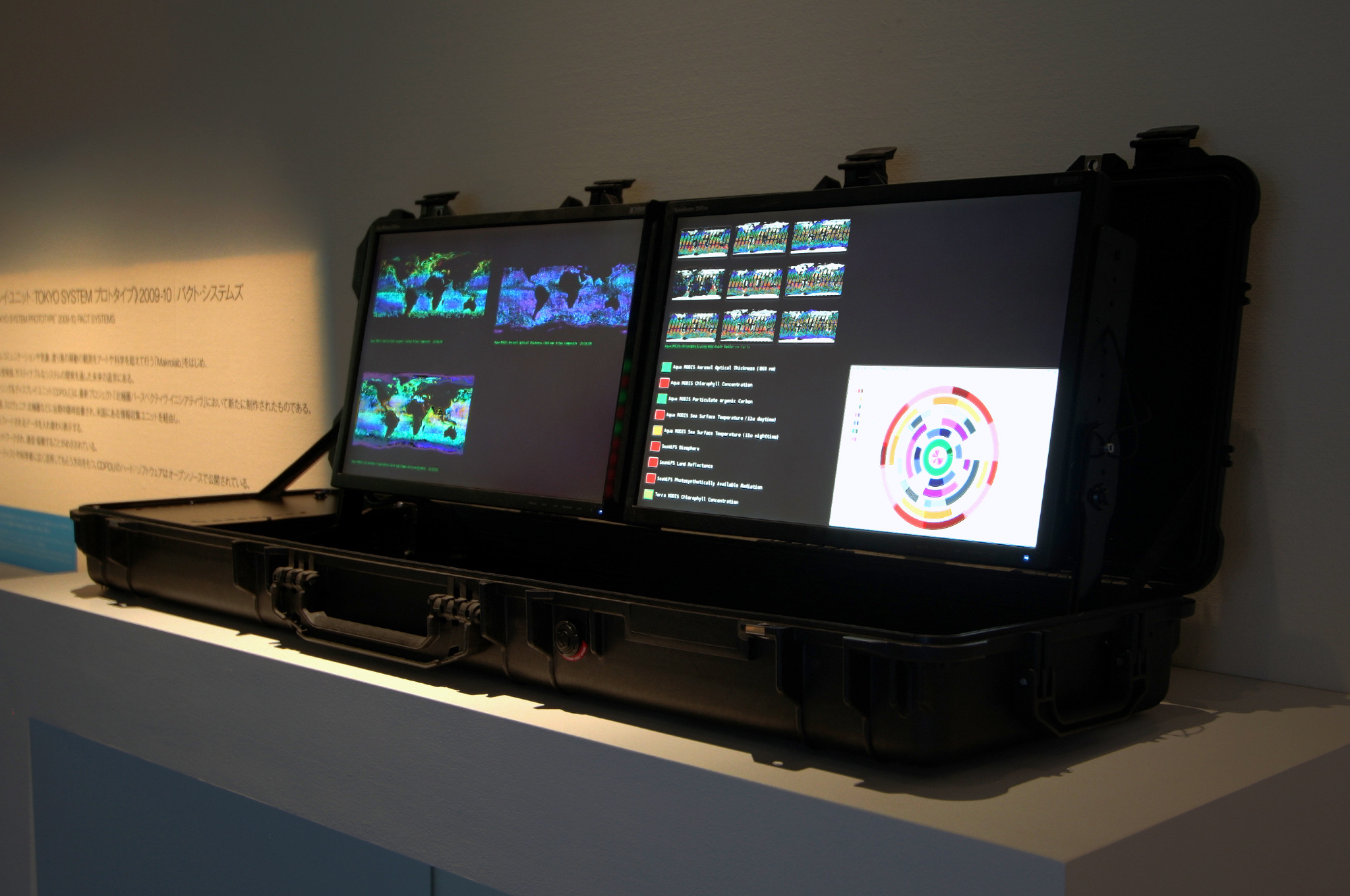Linz, 6–10 September 2023 – konS ≡ The Platform for Contemporary Investigative Art is proud to be a guest of Ars Electronica, the most important international digital arts festival in Linz, which awarded two honorable mentions to konS productions at the announcement of this year’s festival award winners in June, and has invited both of them to participate in this year’s festival as well. In addition, the festival selectors were impressed by the StellaVerde smart garden prototype and the SPEKTR Z laboratory, which were presented at this year’s exhibition of konS productions of art projects, educational content and technological prototypes at the konSekvence ≡ Fragments of a Possible Ecosystem.
The consortium partner Projekt Atol Institute will participate with its contribution in the festival conference of the European project More-than-Planet. The Academy of Arts of the University of Nova Gorica will present a selection of works by students who respond to the changing view of ownership of the planet, nature, people, ideas and technology by addressing social and environmental themes, artificial intelligence, reflections on a future without humans, as well as intimate meditations on identities, gender, power and the fragility of the individual.
We are also proud that Ars Electronica also includes two research artists of a younger generation, who work at the KonS ≡ Platform for Contemporary Investigative Art, but who are presenting projects that have been created under different directorships at the festival. Špela Petrič is a guest of this year’s ArtScience residency with her project AIxxNOSOGRAPHIES, and Dorotea Dolinšek is a guest of the European Media Art Platform residency with her project Biosymbiotic Exoskeleton.
konS ≡ PARK and Biobot
The Ars Electronica Award for Digital Humanity, organised by the Ars Electronica Center in cooperation with the Austrian Foreign Ministry, was awarded to konS ≡ PARK – Academy for Contemporary Investigative Art, which “in addition to its extremely convincing quality and originality, is a wonderful example of the variety of ways in which the concept of ‘digital humanity’ can be interpreted. (…) konS ≡ PARK is a concrete offer for the Slovenian education system, which focuses on young people and offers a space for original, unexpected, unusual and inspiring perspectives on the present and possible futures. (…),” the jury justified the honourable mention.
At this year’s Ars Electronica Awards, the project Biobot by Slovenian sculptor and intermedia artist Zoran Srdić Janežič, produced by the Kersnikova Institute under the auspices of the konS ≡ Platform for Contemporary Investigative Art since 2019, also received an Honourable Mention in the Artificial Intelligence & Life Art category. “The jury found that the excellence of the project lies in the unique combination of hardware, software and wetware, where their interconnectivity aims to enable unexpected behaviour and thus liberate Biobot from human productivity expectations.”
StellaVerde and SPEKTR Z
StellaVerde is a prototype of a smart garden developed by the Jožef Stefan Institute and produced by the consortium partner Youth Centre Velenje. The installation shows a micro situation in which plants control a robotic spider to water them with the help of moisture sensors, and in an evolved form, take care of them and responsibly harvest their growth. Through the creative use of different technological sensors in art projects, we can glimpse the life potentials of human and non-human living beings and, through reflections on the maintenance of balance in nature, we can formulate possible scenarios for a non-extractionist coexistence.
The consortium partner of the konS ≡ Platform for Contemporary Investigative Arts, Projekt Atol, is presenting SPEKTR Z – Sensor Polygon for Electromagnetism Communications Technology Research and Sensing, or a hybrid mobile laboratory at this year’s Ars Electronica. SPEKTR Z is a hybrid mobile laboratory, established in 2022, consisting of remote sensing modules and equipment, sensor data reception and processing systems, connecting tactical media practitioners, artists, creative and high-tech industries and research institutions. The Oculus Super Ignes Vigilantes Volavimus situation uses CDPDU, a data display and processing architecture built according to open hardware and software standards, developed by the Arctic Perspective Initiative, to represent the different layers of data collected as part of the lab’s work during the Karst fires, and to allow visitors to freely navigate and manipulate these layers of data.
